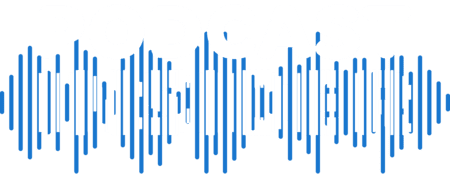International Podcast Day is coming up on September 30 this year. We’ll be participating in the live events for sure, but also wanted to take a minute to reflect on the journey podcasting has taken over the past decade or so. And today we’re getting back to basics: how to start a podcast. Podcasting has become part of mainstream culture and media consumption, and it continues to increase in popularity–check out some interesting Podcast Stats Sound Bites we published in early 2019 for some examples. But, for this post, read on for some tips on how to start a podcast.
Pick your podcast topic & format
In order to start a podcast, you need to have something to talk about. Pick a topic that interests you, gets you excited, and that you could imagine talking about for hours. Maybe it’s a subject you’ve always been interested in, and want to take listeners along with you as you learn more about it. Maybe it’s a field in which you’re already an expert. Maybe you have a unique perspective on something. While you’re deciding on your topic, also keep in mind what format you’ll use: will you have co-hosts? Will you interview people? Will you go it alone? Some combination of all three?
Buy your domain and set up your podcast website
Sure, we may be biased because we’re a podcast hosting company. But we’re also right. You’ll have significantly more opportunities to produce, publish, and promote your podcast if you own your brand. One of the most fundamental ways to own & build your podcast brand online is to own your podcast feed, and to have your own website. There are tons of places to buy your domain name, so go ahead and search for one you like. Once you have your domain, you should check out podcast hosting from Blubrry. Our hosting plans come with one of the few IAB certified podcast statistics platform available in the market today. You’ll also get–included in your monthly subscription–a WordPress website, PowerPress, no-fault overage, and syndication tools so you can get your podcast to Apple Podcasts, Google Podcasts, Spotify, and the other major podcast discovery platforms. Having your podcast on your own website allows you to follow best practices for podcast SEO, rather than relying on a podcasting platform to police the spammy bad actors out there.
Podcasting gear
We love good gear here. But know what we love even more? When people just start podcasting with whatever they have. At minimum, you need a way to record your voice, a way to edit the recording, and a way to get that recording to the internet (upload it to your Blubrry Podcast Website mentioned above, hint hint). There are tons of really great free audio recording and editing software options out there. Also, when you’re thinking about microphones, computers, headphones/monitors, keep in mind there is a huge used gear market online on sites like Ebay, Craigslist, and Facebook Marketplace to name a few. The most important thing when putting together your gear list is: get the minimum amount needed to get started. Once you’re up and running, hitting your stride as a podcaster, you’ll have plenty of time for gear upgrades.
Upload, publish, promote
Once you’ve got your topic, format, domain, website, and gear, it’s time to record! Don’t be afraid, do like Shia Labeouf says:
Ok. Now that you have your first episode in the bag, it’s time to upload it to your podcast media hosting account. If you’re using the Blubrry Podcast Website and PowerPress this is probably the easiest of all the steps. Read all the details here if you need a tutorial. Or, if you’re a Blubrry customer, reach out to our fine folks in customer support. We’re happy to help.
Why podcasts stats are important & how to analyze them
Podcast stats are a podcasters best friend. They tell you when, how, where, and on what devices your podcast is consumed. With Blubrry Podcast Stats, you can even get partial download reporting. You can use these statistics to help determine which episodes your audience likes and doesn’t like in order to build a more loyal and larger audience. It’s kind of like reading body language in person: it helps you understand that person is doubting what you’re saying when they cross their arms and cover their mouth with their hand. In the same way, podcast stats help you understand the consumption patterns of your audience, and what topics, timing, etc. resonate with your them. Then, you can give them more of the things they like (consume) when/where/how they want it, and less of the things they don’t.
If you really want to get into the nitty-gritty of podcasting, it’s probably worth perusing our Podcasting Manual. There’s detailed information about a wide range of podcasting-related topics, including answers to some questions you might not even know you have yet.





